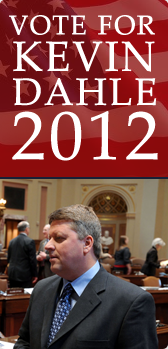Often times, good bills come to me from a constituent who shares their concerns or ideas on how to improve our communities and our state. Recently, I have been working on an issue that came to me after a few concerned citizens brought it to my attention. Publicly-owned municipal utilities, including the Municipal Power Agencies (MPAs) that provide energy to Le Sueur and New Prague in our district, do not have to comply with the Data Practices Act or open-meeting law that keeps public entities transparent and accountable.
Under current law, municipal utility companies are not regulated by the Public Utilities Commission or any other state body when it comes to public access. While perfectly acceptable for a private company, this can present a problem in a public setting: for example, publicly elected officials appointed to the Minnesota Municipal Power Agency board for Le Sueur, Shakopee, North St. Paul, and other cities are required to sign strict confidentiality agreements and cannot share anything discussed at board meetings with their constituents. This government-sponsored censoring of our elected officials and public servants should not be allowed to continue. I am not alone in my concern. Several mayors of Minnesota cities and representatives from Minnesota newspapers have reached out to me in support of municipal utility company transparency.
Municipal power agencies provide an invaluable service to dozens of Minnesota cities, and can be a good option for a city looking to provide affordable energy to their citizens. Certainly not all MPAs have engaged in dubious behavior, but the public should be allowed to examine the actions of those who are ultimately accountable to the voters.
It is true that MPAs are technically following the law, as a 1998 Minnesota Supreme Court decision narrowly ruled to exempt MPAs from the Open Meeting Law and the Data Practices Act. This is why I have authored a bill to clarify Minnesotans’ expectations for these agencies, requiring them to follow the same laws that allow the public and media to access school board meetings, the city council, and even the state legislature.
As the dissenting opinion from that same case argued, “Cities are not required to join together to form publicly-owned electrical utilities, but if they do, those publicly-owned entities should not automatically be entitled to a level of secrecy in doing business that other government entities are not accorded.” Increasing opportunities for discussion and public input in a utility that is formed by other elected bodies can only further the goal of serving the public good.
My bill has the support of many in the Senate, but unfortunately the House version of the bill has not been granted a hearing, stalling the bill in both chambers. This inaction is perpetuated by the widespread belief that Minnesotans do not face a problem in this regard. In fact, the website of the Minnesota Municipal Utilities Association (the organization that lobbies for MPAs) falsely claims they are subject to the very transparency laws they ignore.
The core of good government is accountability and transparency, and from my perspective these organizations have neither. Anything can happen behind closed doors, and the checks and balances so critical to our democracy cannot happen without transparency. This should not be a partisan issue; it is time for legislation to correct this oversight, and to make sure these government agencies are truly accountable, especially to the people they serve.


Tweet